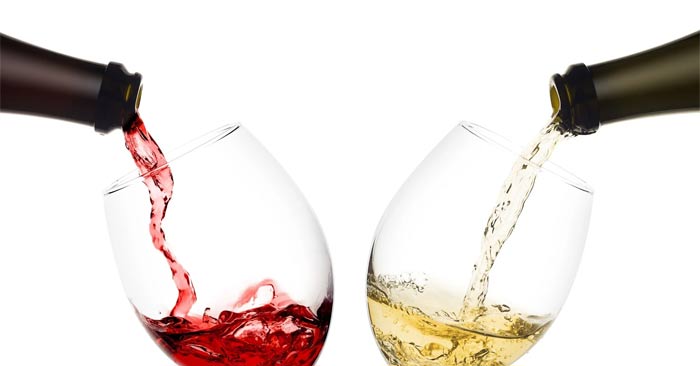Red or white wine has a risk of causing cancer?
Drinking alcohol can increase your risk of certain cancers. But is the same true for wine? Does drinking red or white wine increase your risk of cancer? Let's find out!

A meta-analysis of observational studies published in Nutrients sought to compare the potential effects of white and red wine on cancer risk.
In their analysis of 42 studies, researchers found no association between red wine or white wine consumption and overall cancer risk.
However, when they looked at only group studies, they found that white wine consumption was associated with an increased risk of cancer. White wine drinking was also associated with an increased risk of skin cancer and in women.
What effect do white wine and red wine have on cancer?
The authors of this meta-analysis note that research regarding wine consumption and cancer risk remains inconclusive.
For the current meta-analysis, researchers from the Brown School of Public Health, Warren Alpert Medical School of Brown University, and Harvard Medical School sought to compare red & white wine consumption and how each beverage affects overall cancer risk, at a specific location.
- First, they conducted a comprehensive search of the digital repositories Embase and Pubmed to find relevant studies. They excluded studies that did not specify the type of wine and articles such as literature reviews and experimental studies.
- They included 22 case-control studies and 20 cohort studies in the final meta-analysis. The researchers performed subgroup analyses to look at wine type and cancer type when there were more than three studies that linked cancer type.
- They tested several types of cancer at a specific site, including prostate cancer, female breast cancer, skin cancer, and lung cancer.
- They also conducted an analysis that included only cohort studies because these studies had a lower risk of bias.
- Thirty-seven studies focused on site-specific cancers and red and white wine consumption, while five studies focused on red wine alone.
When researchers compared the highest to lowest wine consumption, they found no association between wine intake and cancer risk. They also did not observe any difference in how red or white wine affected cancer risk.
However, the study has limitations. This was a meta-analysis of observational studies, so data on wine consumption came from self-reported questionnaires. In addition, case-control studies—which made up about half of the studies included in the analysis—may be more susceptible to recall bias.
The notion that red wine has more health benefits when compared to white wine is not entirely unfounded, as red wine contains the antioxidant resveratrol, a plant compound linked to heart health benefits.
The most important thing to remember is that all of our lifestyle choices—including what we consume—can impact our risk of cancer. Not drinking alcohol is one of the best ways to prevent cancer.
You should read it
- ★ New finding: Drinking 1 glass of wine has the same effect as 1 hour of gym
- ★ Should wine be stored in the refrigerator?
- ★ Guide to wine selection
- ★ An old wine pitcher for over 1,600 years, no scientist dared to open it very curious
- ★ Drinking a glass of red wine every week can improve your chances of getting pregnant